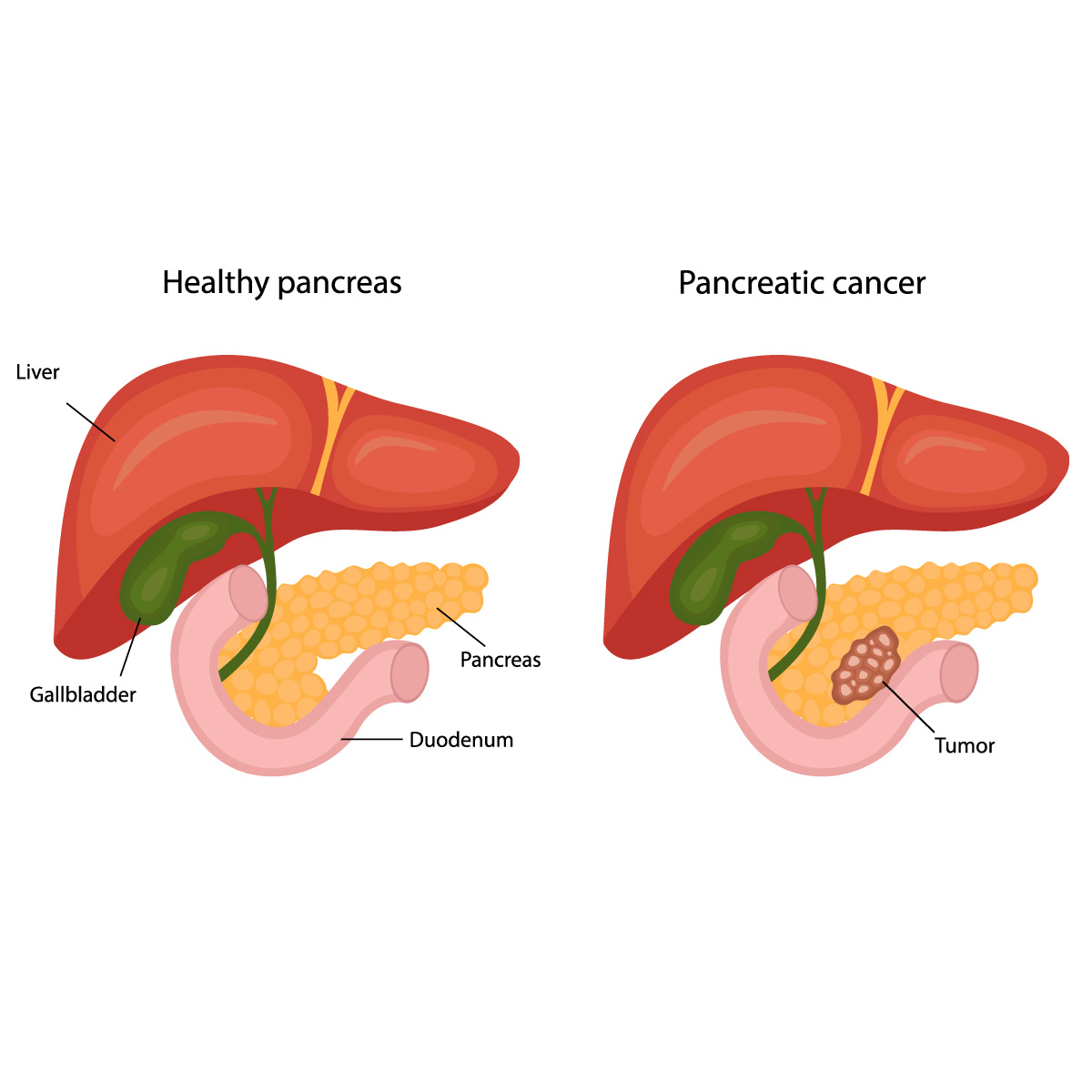
Pancreatic cancer


Overview
The pancreas is a pear-shaped organ that is approximately six inches long located behind the stomach. Its function is secreting hormones such as insulin to aid digestion and blood sugar regulation.
The mutation of pancreatic cell causes uncontrolled duplication resulting in forming a mass of cells also known as a pancreatic tumor. This tumor then begins to invade and destroy the healthy tissues. Untreated pancreatic cancer has the ability to spread to organs around it or to other parts of the body (metastasis).
Symptoms
There are usually no signs and symptoms seen in pancreatic cancer until the disease has become advanced. But if there are any, the following may be observed:
- Loss of appetite or unexplained weight loss
- Nausea and vomiting
- Abdominal pain radiating to the back
- Jaundice (yellowish discoloration of the skin and the sclera of the eyes)
- Light-colored stool
- Dark-colored urine
- New onset of diabetes
- Itchy skin
- Blood clots in the body
- Tiredness
If you notice these symptoms and it worries you, consult a doctor for proper diagnosis and treatment.
Risk factors
The following are the risk factors which may result in pancreatic cancer:
- Familial genetic disease that carries BRCA2 genetic mutation, Lynch syndrome and familial atypical mole-malignant melanoma (FAMMM) syndrome
- Pancreatic cancer in family
- Ashkenazi Jewish descent
- Race: African-American
- Gender: Male
- Old age (more than 65 year old)
- Having diabetes
- Having chronic pancreatitis (inflammation of the pancreas)
- Smoking
- Being obese or overweight























